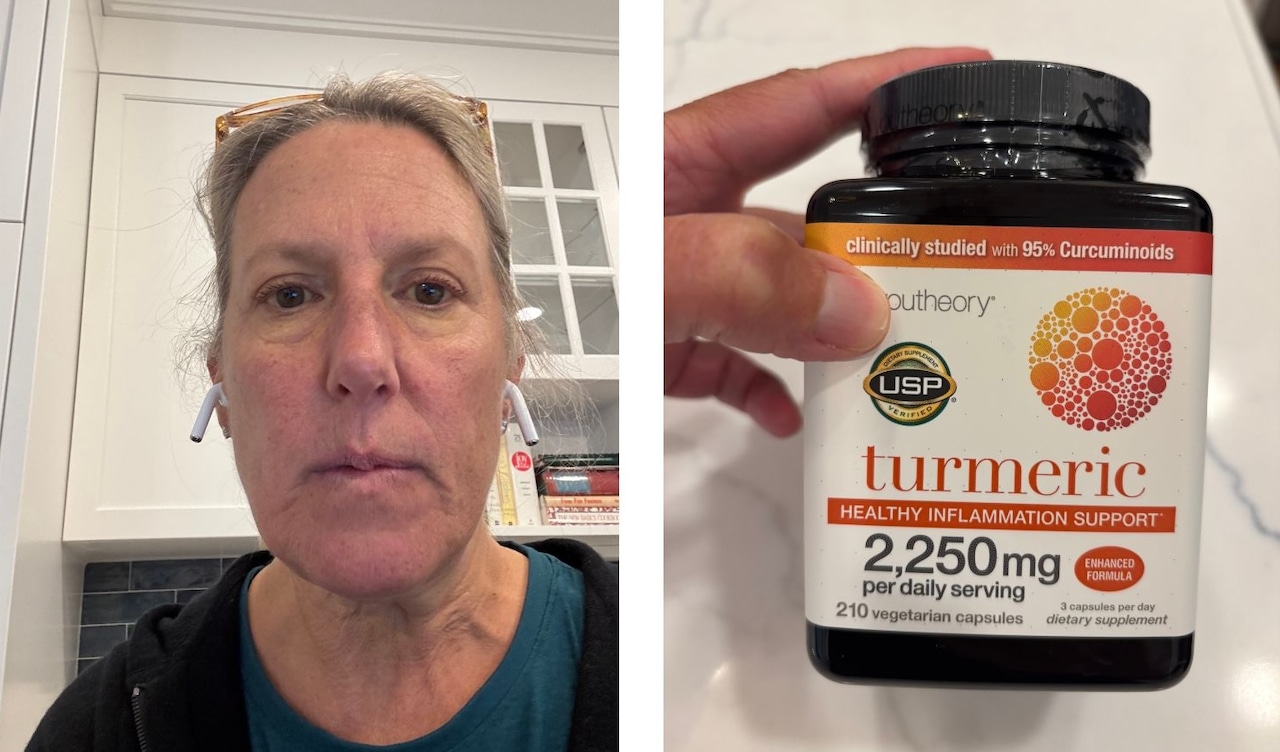The mysterious symptoms started out mild.
Katie Mohan just had some abdominal pain.
But within several weeks, she felt nauseous. Her urine became darker. She was easily fatigued, despite teaching and taking barre classes for the past 15 years.
And perhaps most alarming, the whites of her eyes began to yellow, shortly before her whole body became jaundiced.
She never could have imagined the reason behind the puzzling health crisis: the daily turmeric pills she began taking just a few months earlier.
“Am I going to need a liver transplant? Am I going to die?” the 57-year-old Morristown, N.J., woman recalled thinking in her hospital bed. “I was very, very, very scared.”
Mohan picked up the pills from Costco in mid-March.
She had some joint pain and decided to take turmeric, looking to reduce inflammation. She did some research and found several benefits to the herbal supplement.
“Despite what people think, I didn’t just get … you know, advice from a doctor on Instagram,” Mohan told NJ Advance Media.
The pills, which include “enhanced absorption with black pepper,” according to the labeling, are manufactured by Youtheory, an Irvine, California-based supplement brand.
The product’s daily dose is three pills containing 2,250 milligrams — well beyond the World Health Organization’s recommendation of 0-3 milligrams per kilogram of body weight per day.
But Youtheory doesn’t sell its 2,250-milligram bottle on its website.
Only the 1,000-milligram bottles are available to be purchased online. (Costco’s own Kirkland brand of turmeric pills is a 1,000-milligram bottle and includes a warning label about potential liver problems.)
Neither Youtheory nor Jamieson Wellness Inc., its parent company, responded to a request for comment. Costco also did not respond to a request for comment.
Mohan first saw her doctor in early April, after she began feeling uncomfortable. Her stomach was tender, so her doctor ordered blood work and an abdominal CT scan.
Both her blood work, including her liver enzyme levels, and the scan came back normal.
But her symptoms continued to worsen and multiply. She made another appointment with her doctor in early June, but before she could, a recent NBC News story caught her eye.
Robert Grafton, a Turnersville man who had similar symptoms to Mohan, began feeling sick after he took herbal supplements, including turmeric pills. He received a diagnosis: drug-induced liver injury.
The supplements were making him sick.
Mohan realized their cases were nearly identical — they were roughly the same age, taking the same dose of turmeric and experiencing the same symptoms.
“I threw them out,” Mohan said, “and I said to myself, ‘I’m wondering if this is what’s causing my symptoms.’”
She then went to an urgent care in Florham Park, after her doctor needed to cancel her appointment due to a family emergency. By this point, Mohan’s eyes had begun to yellow.
She was admitted to the emergency room at Morristown Medical Center, where doctors ran several more tests and found severe acute liver damage, with no sign of prior damage.
Doctors treated her with an antiviral and an IV drip. But after a few days at Morristown, her liver enzyme levels spiked, instead of dropping. Her skin became completely jaundiced.
She was transferred to NYU Langone in New York, where she was hospitalized with “evidence of acute hepatitis, impending liver failure and potential transplant evaluation,” said Dr. Nikolaos Pyrsopoulos, a hepatologist at NYU Langone who is also associated with Atlantic Health.
“She was really very sick,” said Pyrsopoulos, who was one of the doctors who treated Mohan. “Her liver numbers were 60 to 70 times above the normal limit. And she was very yellow.”
The doctors continued to treat her, and her levels began to trend downward. A doctor confirmed the pills caused Mohan’s sickness. But he also told her her case was part of a concerning trend.
They see three to four liver transplants a year, the doctor told her, due to turmeric-induced injury.
“He’s like, ‘You essentially poisoned the liver with the turmeric,’” she recalled. “It was the dose combined with the fact that it had that black pepper in it.”
Mohan continued to receive treatment at NYU for another day, before she was discharged.
Her levels are still slightly elevated, but are closer to normal and continue to fall. And her symptoms have disappeared.
When she first returned home, Mohan said she felt irritated with herself. The sickness and damage to her liver was entirely preventable, she said, and she never consulted her doctor.
But her doctor told her during a follow-up appointment she never would’ve advised against it.
“I never would have told you not to take turmeric, because it does have so many health benefits,” Mohan’s doctor told her.
Mohan, who reported Youtheory’s 2,250-milligram bottle to the FDA, said she wishes there had been a warning label on the package, similar to Costco’s Kirkland brand for 1,000 milligrams.
Plenty of people ingest turmeric, and they’re fine, Mohan said. But this particular dose and brand was too much for her body, she said.
“I’m not telling people not to take it. But you know, just be aware,” she said.
If you purchase a product or register for an account through a link on our site, we may receive compensation. By using this site, you consent to our User Agreement and agree that your clicks, interactions, and personal information may be collected, recorded, and/or stored by us and social media and other third-party partners in accordance with our Privacy Policy.
